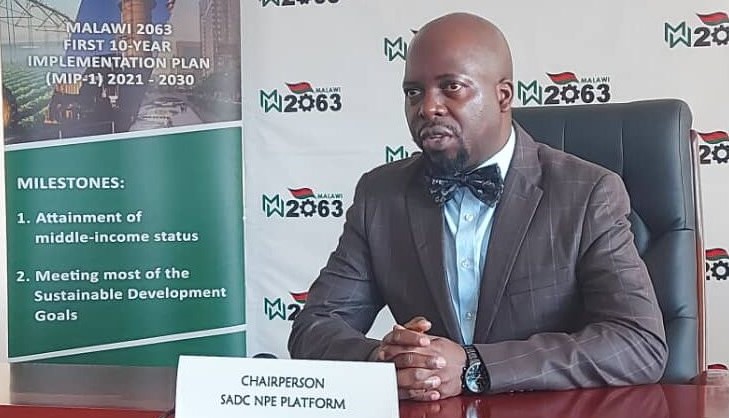NPC head tips government on private sector investment
National Planning Commission (NPC) director general Thomas Chataghalala Munthali has urged the government to work with the private sector and de-risk investments in critical sectors to stimulate local economic growth.
He was reacting to Reserve Bank of Malawi (RBM) data which showed that private sector credit had dropped 2.5 percentage points from 20.4 percent in the third quarter of 2023 to 17.9 percent in the fourth quarter, a development local economic analysts said would derail the Malawi 2063.

In its First Monetary Policy Report of 2024, the central bank said credit remains concentrated in four main sectors—community, social and personal services (34.7 percent), wholesale and retail trade (16.2 percent), agriculture, forestry, fishing and hunting (15.9 percent) and manufacturing (10.6 percent).
Reacting to this, Munthali said the “levels of investments across all the productive sectors remain lower than optimal”, considering that sectors like massive commercial agriculture and manufacturing require huge, cheap, long term and patient capital and a facilitatory investment environment”.
In a WhatsApp response, he said: “This [investment] is largely lacking at the moment for many reasons including a harsh macroeconomic environment that includes high cost of capital, forex shortages and easy money that banks are making from borrowing money to government, personal services, wholesale and retail sectors.”
Munthali, whose organisation is the key implementor of the Malawi 2063, cautioned that the profits would be unsustainable in the long-term. He, thus, urged the government to engage the private sector to address the “bottlenecks they experience to bring in new investment and scaling up existing investment”.
Speaking separately, economic statistician Alick Nyasulu said private sector investment has remained low because of the high borrowing costs and the government’s tendency to borrow from the domestic market.





